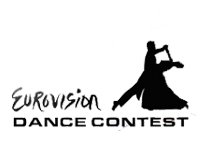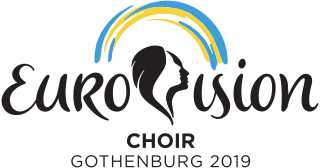
The European Broadcasting Union is an alliance of public service media organisations whose countries are within the European Broadcasting Area or who are members of the Council of Europe. As of 2022, it is made up of 112 member organisations from 54 countries, and 30 associate members from a further 19 countries. It was established in 1950, and has its administrative headquarters in Geneva.

The Eurovision Song Contest 1968 was the 13th edition of the annual Eurovision Song Contest. It took place in London, United Kingdom, following the country's first victory at the 1967 contest with the song "Puppet on a String" by Sandie Shaw. Despite having won for the first time the year before, it was actually the third time that the United Kingdom had hosted the competition, having previously done so in 1960 and 1963, both of which also took place in London. Organised by the European Broadcasting Union (EBU) and host broadcaster British Broadcasting Corporation (BBC), the contest was held at Royal Albert Hall on 6 April 1968, and was hosted by Katie Boyle for the third time. It was notably also the first time that the contest was broadcast in colour.

The Junior Eurovision Song Contest 2003 was the inaugural edition of the annual Junior Eurovision Song Contest for young singers aged eight to fifteen. It was held on 15 November 2003, in Copenhagen, Denmark. With Camilla Ottesen and Remee as the presenters, the contest was won by the then eleven-year-old Dino Jelusić, who represented Croatia with his song "Ti si moja prva ljubav" while second and third place went to Spain and the United Kingdom respectively. The next time that a country would win on its first attempt was Italy in 2014.
The BBC Symphony Chorus is a British amateur chorus based in London. It is the dedicated chorus for the BBC Symphony Orchestra, though it performs with other national and international orchestras.
Eurovision is a pan-European television telecommunications network owned and operated by the European Broadcasting Union (EBU). It was founded in 1954 in Geneva, Switzerland, and its first official transmission took place on 6 June 1954. However, a year before the official launch, on 2 June 1953 the coronation of Elizabeth II was one of the first events to be broadcast across Europe.

The Eurovision Song Contest 2007 was the 52nd edition of the Eurovision Song Contest. It took place in Helsinki, Finland, following the country's victory at the 2006 contest with the song "Hard Rock Hallelujah" by Lordi. Organised by the European Broadcasting Union (EBU) and host broadcaster Yleisradio (YLE), the contest was held at the Hartwall Areena, and consisted of a semi-final on 10 May, and a final on 12 May 2007. The two live shows were presented by Finnish television presenter Jaana Pelkonen and musician and TV-host Mikko Leppilampi. In addition, Krisse Salminen acted as guest host in the green room, and reported from the crowds at the Senate Square.

The Eurovision Dance Contest was an international ballroom dancing competition organised by the European Broadcasting Union (EBU) and the International DanceSport Federation (IDSF). The IDSF credits the existence of the contest to Richard Bunn of RBI network, Geneva, former EBU controller of sport, who convinced the EBU to create the programme.
The Swedish Chamber Choir is a Swedish mixed choir based in Gothenburg. The choir was formed in 1997 and has been led by British conductor Simon Phipps since the beginning. In recent years the choir has received a lot of attention winning several international competitions.

The Eurovision Young Musicians 1988 was the fourth edition of the Eurovision Young Musicians, held at Concertgebouw in Amsterdam, Netherlands on 31 May 1988. Organised by the European Broadcasting Union (EBU) and host broadcaster Nederlandse Omroep Stichting (NOS), musicians from six countries participated in the televised final. A total of sixteen countries took part in the competition. All participants had to be younger than 19 and performed a classical piece of their choice accompanied by the Radio Filharmonisch Orkest conducted by Sergiu Comissiona. Cyprus and Spain made their début, however Israel decided not to participate.
James Edward Petroc Trelawny is a British classical music radio and television broadcaster. Since 1998 he has been a presenter on BBC Radio 3.

The United Kingdom has participated in the biennial classical music competition Eurovision Young Musicians sixteen times since its debut in 1982, most recently taking part in 2018 after a 8-year absence. The United Kingdom hosted the inaugural contest in 1982 and won the contest in 1994. The country returned to the contest in 2018 as hosts, but did not return for the next edition in 2022.

Sofia Vokalensemble is a mixed chamber choir based in the Sofia Church in the Sofia parish in Stockholm, Sweden. The choir in its present form was founded in 1995 by conductor Bengt Ollén who still leads the artistic work.
Let the People Sing was a choir contest run and broadcast by BBC Radio radio from 1950s to 1980s. The contest also led to new choral works being commissioned.

Eurovision Choir of the Year 2017 was the first Eurovision Choir competition for choral singers, which was organised by the European Broadcasting Union (EBU) and Interkultur. It was held on 22 July 2017, at the Arena Riga, in the Latvian capital, Riga. The event was produced by Latvian host broadcaster Latvijas Televīzija (LTV) and the Riga Tourism Development Bureau.

Eurovision Choir is a choral competition organised by the European Broadcasting Union (EBU) and Interkultur. It is modeled after the latter's World Choir Games. Participation is open to non-professional choirs selected by member broadcasters of the EBU.

The Eurovision Young Musicians 2018 was the 19th edition of the Eurovision Young Musicians contest. It was hosted by the United Kingdom, for the first time since the inaugural contest in 1982. This edition was a co-production between the European Broadcasting Union (EBU), the Edinburgh International Festival and the British Broadcasting Corporation (BBC) as host broadcaster. Musicians representing eighteen countries with EBU membership participated in the contest, with Albania making their debut alongside seven returning countries, while Austria decided not to participate for the first time.
This is a timeline of notable events relating to BBC Radio 1, a British national radio station which began in September 1967.
A timeline of notable events relating to BBC Radio 4, a British national radio station which began broadcasting in September 1967.

Eurovision Choir 2019 was the second Eurovision Choir competition for choral singers, organised by the European Broadcasting Union (EBU) and Interkultur. It was held on 3 August 2019, at the Partille Arena, in Partille Municipality, Metropolitan Gothenburg, Sweden. The event, presented by Petroc Trelawny and Ella Petersson, was produced by Swedish host broadcaster Sveriges Television (SVT) together with an international team of EBU members, the European Choir Games and the City of Gothenburg.
A timeline of notable events relating to BBC Radio 3, a British national radio station which began broadcasting in September 1967.












